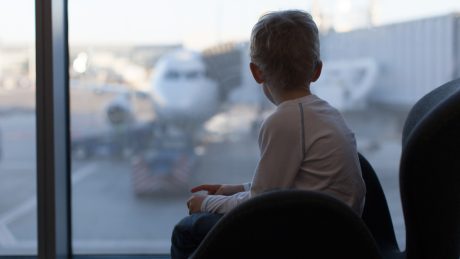There will be many parents who were considering returning to their home country before the Covid-19 crisis hit or relocating with a new partner for work or other reasons. There will also be those who need to reconsider their future plans as a result of the changes to the economy in the post Covid-19 era. In this article, Nicola Hogg examines the legal requirements that apply if following divorce or separation a parent wishes to relocate to another country with a child or children of the relationship.
Relocation after divorce or separation
There can be many reasons why a parent may wish or need to live in a different country following the breakdown of their relationship with the other parent. The most common reasons seen by family lawyers are:
- A wish to go home because of feelings of isolation and/or unhappiness
- An offer of new employment or to progress a career
- A wish to move to a new country with a new partner
- A desire for an improved lifestyle
A wish to go home tends to arise relatively soon after a separation and/or divorce, whereas other reasons may arise at any time.
Consent is required at all times
A parent who seeks to relocate a child internationally must not remove the child from the UK without the written consent of every person with parental responsibility or leave of the court. To remove a child without such permission or a specific order of the court is likely to amount to a breach of the principles of the Hague Convention on the Civil Aspects of International Child Abduction and be viewed as ‘child abduction’.
The one temporary exemption from this principle relates to travel for less than one month where there is a court order in place that directs that a child ‘lives with’ a specific parent (or indeed both parents). Such an order is one of a number of ‘child arrangement orders’ that the court can make on the application of one parent.
Parental agreement as to the relocation?
Where parents are able to discuss and agree on the permanent relocation of one parent and the child or children, it is recommended that such agreement is put in writing and signed by both parents to limit any future disputes.
No agreement
Absent the consent of the other parent, the parent wishing to relocate will need to apply to the court for an order permitting the relocation.
The overriding principle of law to be applied is that the welfare of the child is the court’s paramount consideration. The court’s focus in making a decision must be on the child’s best interests, and every case must be determined having regard to a statutory welfare checklist.
Where parents are not able to agree the relocation and court proceedings are issued, these proceedings are, understandably, often heavily contested and emotionally fraught, particularly as they usually take place in the immediate aftermath of a relationship breakdown.
The parent who wishes to move will feel that he or she can make the best life for the child abroad. The other parent will feel equally strongly that the child’s relationship with him or her will be deeply affected if they are no longer able to have involvement in their day-to-day lives, including during the school term. The outcome is binary. The judge has to decide whether the child stays or goes; there is no compromise solution.
As a result, relocation applications are expensive, stressful and have the potential to damage even a strong co-parenting relationship. Given their binary nature, reaching an agreement is not usually possible. However, it may be worth considering arbitration, which is now available for applications for temporary and permanent relocation to certain jurisdictions. The arbitration scheme covers proposed relocation to jurisdictions that have ratified and acceded to conventions for recognition of orders, enforcement and return provisions for abduction.
Considerations of the court in the Covid-19 era
As already mentioned, the paramount consideration for the English court when deciding international relocation applications is the best interests of the child. The motivations of the parent who wishes to move, such as their plans for housing, schooling and, importantly, proposals for contact with the other parent, will be placed under the microscope by the court when it is asked to make an order for relocation.
The court must consider the impact on the applicant parent if permission to relocate is refused as well as the impact on the “left-behind parent” if it is granted.
In the wake of the pandemic, the court will have an eye on whether, given government guidelines on travel restrictions and the quarantine rules upon arrival into a county, contact with the other parent will be adversely impacted. In most cases, the court will want to ensure that the child can continue to have a relationship with the other parent, including face to face contact. Such restrictions and rules are likely to vary from country to country. Whether or not a vaccine is available and to whom is also likely to be a future consideration as will the child’s anticipated quality of life under the local rules and level of lockdown being imposed.
Relocation during Covid-19: top tips for a parent wishing to relocate
- Use this period of uncertainty with travel and quarantine restrictions to form an early and detailed plan in respect of the contact arrangements, education and housing that you wish to be in place post relocation. Bear in mind that these will need to stand up to the scrutiny of the court.
- In most cases, it will be helpful to have a pattern of contact with the other parent (and of you facilitating such contact) before making an application to the court.
- Timing is everything. Keep an eye on government advice in relation to travel restrictions and quarantine measures in the country to which you wish to relocate.
- Where possible, try to arbitrate; it is likely to be quicker, particularly in the current climate, and you can choose the arbitrator.
Carly Kinch, Partner commented:
“In determining whether a relocation is in a child’s best interests inevitably requires the court to make an assessment as to the real motivation behind it. In particular, the court will be concerned to ensure that the relocation is not in any way driven by a desire to limit the ‘left behind’ parent’s contact with the child. The applicant parent’s conduct in facilitating conduct and supporting the child’s relationship with the other parent will be heavily scrutinised and parties should not therefore be tempted to try and use the current lockdown and travel restrictions as an opportunity to restrict the other parent’s contact.
“Equally, parties need to be alive to the fact that as the global situation evolves, and different countries ease travel and other restrictions at different times, a situation could well arise when the government restrictions of the two relevant countries are inconsistent. This has the potential not just to undermine what would otherwise be sensible and pragmatic proposals for a child to spend time with the ‘left behind’ parent but also the substantive relocation application as a whole. The timing of issue and likely determination of any such application is now more critical than ever.”
Covid-19 is impacting individuals and companies around the world in an unprecedented way. We have collected insights here to help you navigate the key legal issues you may be facing at this time.
You can find further information regarding our expertise, experience and team on our Divorce and Family pages.
If you require assistance from our team, please contact us or alternatively request a call back from one of our lawyers by submitting this form.
Subscribe – In order to receive our news straight to your inbox, subscribe here. Our newsletters are sent no more than once a month.








